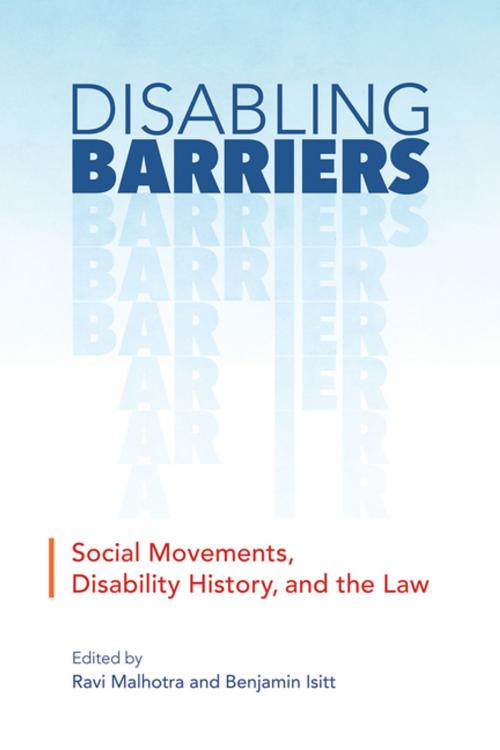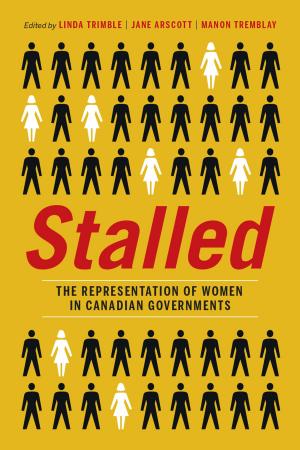Disabling Barriers
Social Movements, Disability History, and the Law
Nonfiction, Reference & Language, Law, Disability, Social & Cultural Studies, Social Science, Political Science, Government, Social Policy| Author: | Benjamin Isitt, Ravi Malhotra | ISBN: | 9780774835268 |
| Publisher: | UBC Press | Publication: | October 15, 2017 |
| Imprint: | UBC Press | Language: | English |
| Author: | Benjamin Isitt, Ravi Malhotra |
| ISBN: | 9780774835268 |
| Publisher: | UBC Press |
| Publication: | October 15, 2017 |
| Imprint: | UBC Press |
| Language: | English |
Disabling Barriers analyzes issues relating to disability at different moments in Canadian and American history. In this volume, legal scholars, historians, and disability-rights activists demonstrate that disabled people can change their social status by transforming the political and legal discourse surrounding disablement.
Traditionally, disabled people were regarded as objects of pity and condescension. The rise of the social model of disablement – which identifies barriers, rather than physiological impairments, as the main problem facing people with disabilities – has resulted in a dramatic reconfiguration of how we regard political and legal structures affecting people with disabilities. Employing tools from the fields of law and history, this volume explores how disabled people have been portrayed and treated in a variety of contexts, including within the labour market, the workers’ compensation system, the immigration process, and the legal system (both as litigants and as lawyers).
This original contribution deepens our knowledge of the role of people with disabilities within social movements in disability history. The contributors encourage us to rethink our understanding of both the systemic barriers disabled people face and the capacity of disabled people to effect positive societal change.
Disabling Barriers analyzes issues relating to disability at different moments in Canadian and American history. In this volume, legal scholars, historians, and disability-rights activists demonstrate that disabled people can change their social status by transforming the political and legal discourse surrounding disablement.
Traditionally, disabled people were regarded as objects of pity and condescension. The rise of the social model of disablement – which identifies barriers, rather than physiological impairments, as the main problem facing people with disabilities – has resulted in a dramatic reconfiguration of how we regard political and legal structures affecting people with disabilities. Employing tools from the fields of law and history, this volume explores how disabled people have been portrayed and treated in a variety of contexts, including within the labour market, the workers’ compensation system, the immigration process, and the legal system (both as litigants and as lawyers).
This original contribution deepens our knowledge of the role of people with disabilities within social movements in disability history. The contributors encourage us to rethink our understanding of both the systemic barriers disabled people face and the capacity of disabled people to effect positive societal change.















